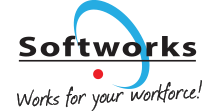According to the Office for National Statistics in the UK and the Bureau of Labor Statistics in the US absenteeism rates appear to have risen over the last few years. With this in mind, we decided to carry out a survey to learn more about trends in unplanned employee absences since the pandemic. We wanted to gather thoughts and learn more about individual organizations’ experiences around areas including:
- Current trends – Are organizations currently experiencing an increase or decrease in absence rates?
- New ways of working – Are more flexible ways of working having a positive or negative effect on employee absences?
- Measuring Absences – How do organizations measure and monitor employee absences? Are they finding it more difficult to measure genuine and non-genuine absences with more people working remotely or on a hybrid basis?
- Presenteeism – Is working from home making it more difficult for employees to take time off? Do they still feel they should be working even if they are genuinely ill?
The survey was conducted online in February and March 2023 and communicated by email and via social media to Softworks customers and followers, along with being distributed by a number of 3rd party publishers. A total of 482 individuals responded to the survey. Responses were treated anonymously. We are delighted to share the survey results with you and would like to thank everyone who took the time to complete our survey.
Demographics
The survey was shared globally with 482 participants across all industry sectors.
No. of respondents
42% of respondents came from workplaces with 100 employees or less, 28% had between 101 and 500 employees, 19% had between 501 and 5000 employees and 11% had over 5001 employees. The industries with the highest number of respondents were Healthcare (25%) followed by the Public sector (14%), Manufacturing (11%), Education (8%), Finance (6%), and Construction (5%).
WORKPLACE SIZE
INDUSTRY
In terms of job types, the majority of respondents worked in HR, Finance, IT, Operations, and General Management.
Key Findings
The respondents were asked if their workplace records unscheduled employee absences.
record employee absences
measure absences using an Absence Management software
believe unscheduled absences have increased in their workplace in the last 12 months
We asked respondents the main reasons for sickness absence in their workplace and also if non-genuine absences i.e. “pulling a sickie” are causing problems.
Top 3 reasons for sickness absence
believe non-genuine absences are causing a problem
Respondents were asked their opinion on doctors’ sick/fit notes and the ability of employees to easily get a doctor to sign them off work.
believe it’s too easy for employees to get a doctor’s sick/fit note
believe doctors are providing sick/fit notes for longer than necessary
The respondents answered questions on presenteeism and the ways to encourage positive attendance behavior.
Top 3 reasons for presenteeism identified
believe presenteeism has increased in their workplace in the last 12 months
Top 3 ways to encourage positive attendance behavior
Conclusion
Organizations are increasingly aware of the damage that non-genuine absences can cause, and managing such absences involves managing people, their relationship with their job, and their overall employee experience, satisfaction, and engagement. Engaged employees have lower levels of absenteeism compared to non-engaged ones.
It is encouraging to see that 92% of workplaces record employee absences, as you cannot manage what you do not measure. However, it is disappointing that 75% of respondents believe that non-genuine absences cause minor to serious issues in their workplaces. Additionally, 53% of respondents believe that unscheduled absences have increased over the last 12 months, although this could still be related to the pandemic.
For workplaces where absences have decreased, it was great to see the positive impact of more flexible working options, clear absence management policies, and good communication between line managers and employees.
The survey found that over half of respondents (55%) believe it is too easy for employees to get a doctor’s sick note, and just under three-quarters (73%) believe doctors are providing sick/fit notes for longer than necessary. This is a challenge for both workplaces and medical practitioners, and there may be a need for closer collaboration to address this issue. Early recognition, effective assessment, and rapid intervention are key to managing absences and preventing them from becoming longer-term and more sustained problems.
Finally, the survey looked at presenteeism, where just over a third of respondents (34%) believe it has increased due to employees working from home and continuing to work. This is a concern, as it could lead to issues with employees’ health and possibly more unplanned and longer-term absences if employees are not taking proper breaks and working excessively long hours over a sustained period. Therefore, organizations should consider addressing this issue to ensure their employees’ well-being and productivity.
Request a free Demo!
Take the first step towards a complete workforce management solution. Talk to us today!
About Tomislav Rucevic
Tomislav Rucevic, an SEO Specialist at Softworks, stands out as more than just a marketer. He’s a fervent writer and influential thinker passionate about Workforce Management, HR, and work-life dynamics. Holding an MBA in Marketing, Tomislav excels in creating content that delves into the complexities of the modern workplace.
His dedication to writing on these topics is highlighted in his MBA thesis, which examined the link between Employee Motivation and Quality Improvement. At Softworks, he expertly merges his SEO skills with his writing prowess, contributing to the company’s digital success and advancing discussions on enhancing work environments and achieving work-life balance.











